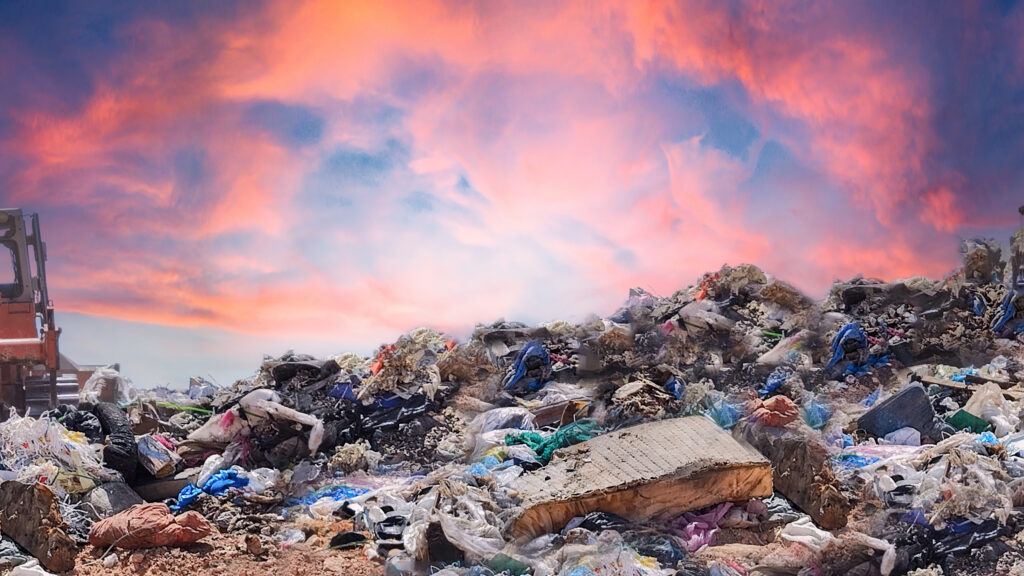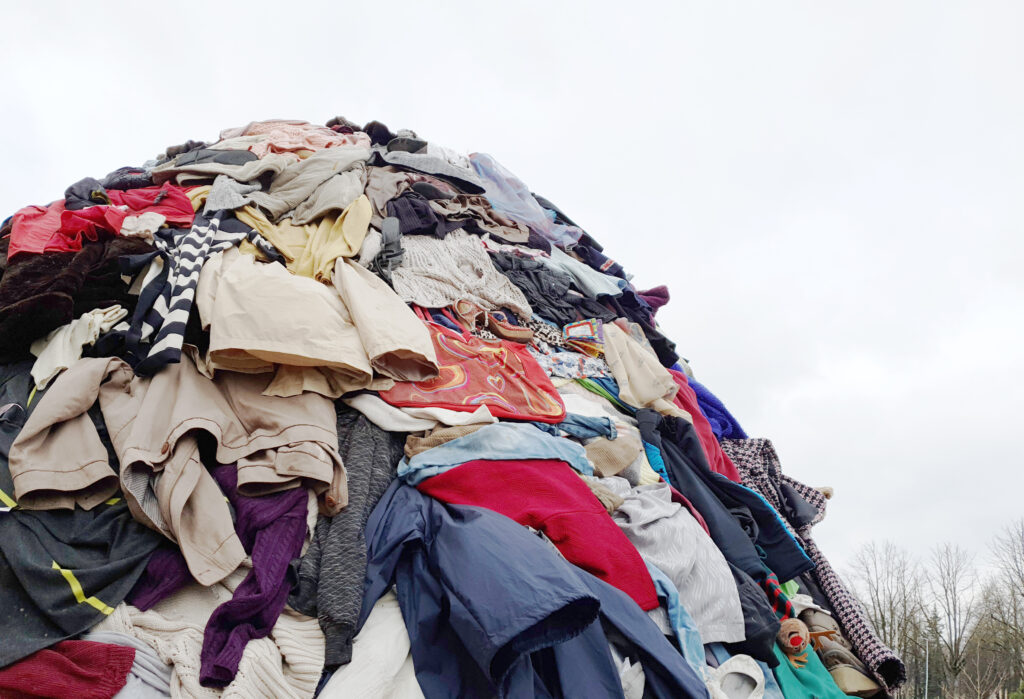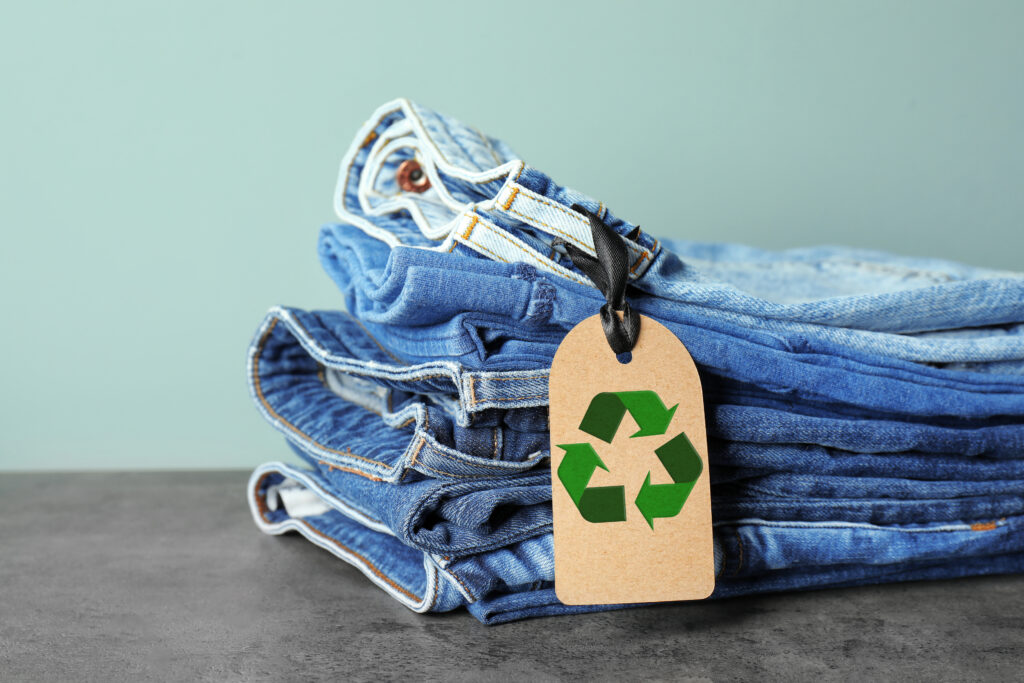
In West Africa, Ghana has unwittingly become the world's textile dustbin. The country receives truckloads of used clothing just waiting to be piled up in garbage dumps. Let's take a look back at the origins of the crisis, and at the solutions for taking action.
The origins of the problem that has turned Ghana into the world's garbage dump

Many of us deposit our clothes in dedicated containers, in the hope of giving them a second life. But what happens to them once they land in the dumpster? Around 5% will find a second life on the hangers of local thrift stores, and 40% will be recycled or transformed. But the majority - 55% of used textiles left in reuse skips like those of Le Relais - will be resold and exported. The import price is €0.50 per kilo of used clothing. And the African country is positioning itself as one of the biggest importers of used clothing, even if it means making Ghana the world's garbage dump.
Every day, no less than 800 million textile products arrive on Ghanaian shores. Among the countries responsible for this flow of filth are France, other European countries, North America and several Asian countries such as China and South Korea. Among them, France is responsible for sending over 500 tons of clothing every year. They are then resold, feeding a second-hand market, as witnessed by the Kantamanto market, where 30,000 vendors sell old clothes and other knick-knacks from the West. However, the quality of the clothes is increasingly mediocre, and the number is growing, due to the evils of consumerism and fast fashion.
The ultra-rapid renewal of collections, over-the-top promotions and fast-disappearing trends have led to a consumerism in which people buy cheap clothes of mediocre quality, only to discard them almost as soon as the fad is over. As a result, the country no longer knows what to do with these clothes, which are too bad to be recycled or resold, and piles them up in unauthorized dumps, making Ghana the world's garbage dump. It is estimated that 40% of second-hand clothes imported by Ghana are unusable, ending up in open dumps or in the ocean. While Ghana once saw these exports as a way out of poverty, today these low-quality garments, which are no more than waste, are plunging the country's inhabitants into even deeper poverty.
The phenomenon is such that in Accra, the capital of Ghana, people have to live with waste on a daily basis. On the coastline, for example, sand has been replaced by textile detritus, to the extent that the area is nicknamed the "trash beach". In Old Fadama, a shantytown in the west of the city, the inhabitants not only have to cope with extreme poverty, they also have to deal with insalubrity. Indeed, textile waste, by forming mountains of filth, is becoming a real public health problem, if only because of the many pests attracted to the garbage dumps. Textile waste, mixed with that discharged by the sea and the household waste of local residents, also poses major pollution problems. In addition to the large quantities of waste that end up in the sea, rainwater run-off from the textile industry causes polluted water to seep into aquifers. The water consumed by local residents becomes polluted and dangerous. Water samples taken from the coast of Ghana have revealed worrying levels of microfibers, which end up being consumed by the fish caught by the local population.
What can be done about Ghana's textile waste crisis?

Good waste is waste that doesn't exist. Indeed, if there are solutions to curb Ghana's problem as the world's dustbin, the most effective is not to feed the textile industry's consumerist system. This means changing our consumption habits, so as to give each item of clothing a longer life. We forget about passing trends and impulses, and choose longer-lasting garments that meet a real need.
Similarly, to reduce our ecological footprint, we avoid parting with our clothes at the slightest upset. There are solutions, even when a garment is worn, has holes or stains: we divert, patch or send it to the dry cleaner.
Another crucial measure for avoiding pollution: avoid fast-fashion chains at all costs! Not only do they introduce numerous programmed obsolescence measures for our clothes, such as almost constant collection changes, they also offer poor quality. As a result, when you finally have to part with your clothes, it's almost impossible to recycle them and get anything out of them. Instead, we turn to small, ideally local, designers to reduce our carbon footprint. We can also rely on responsible fashion labels, such as GOTS, OEKO-TEX, or EcoCert, which indicate that the garment you're buying respects several environmental criteria, and also guarantee a certain level of quality.
Nevertheless, despite all these efforts, it is sometimes unavoidable to part with certain garments. The best way to do this is not to leave it in a dumpster, where it will travel thousands of kilometers in defiance of global warming, perhaps ending up in a developing country's garbage dump. Instead, try to participate in a circular economy, by reintroducing your garment to the market. To do this, consider donating to friends and family, or reselling through second-hand platforms such as Vinted.
Finally, to make a real difference and avoid making Ghana the world's dustbin, you can support an association. One in particular has made this scourge its own battle: The OR Foundation. This non-profit organization, founded by American Liz Ricketts, is fighting to establish sustainable development principles in the fashion industry, and thus free Ghana from its role as the world's textile dustbin. In other words, the NGO seeks to build circular fashion, as opposed to disposable fashion.
Among other actions, the NGO has opened a community center in Accra, Ghana, as well as a "circular lab". The aim is to support local people in the recycling of second-hand clothes using dedicated machines, and also to offer them vocational training, thus qualifying them to fight to prevent Ghana from becoming the world's garbage dump. The OR Foundation has also launched a training program, in which it places Ghanaian women living in poverty in paid apprenticeships alongside local designers, artists and other professionals. These six-month training courses are designed not only to provide a wage for people in distress, but also to equip them with skills that will help them integrate into the job market, far from Ghana's wild waste dumps.
Among its many other programs, the NGO also organizes fundraisers to provide food for Ghanaians involved in the second-hand textile market, events in Western countries toraise consumer awareness of the excesses of fast fashion, medical examinations and treatments for market vendors, and much more.
So, if you'd like to take part in the fight to stop Ghana becoming the world's garbage dump, beyond monitoring your own clothing consumption, one of the best ways is to support The OR Foundation. The NGO accepts one-off or monthly donations, which will be used to support various awareness-raising or reintegration programs.



